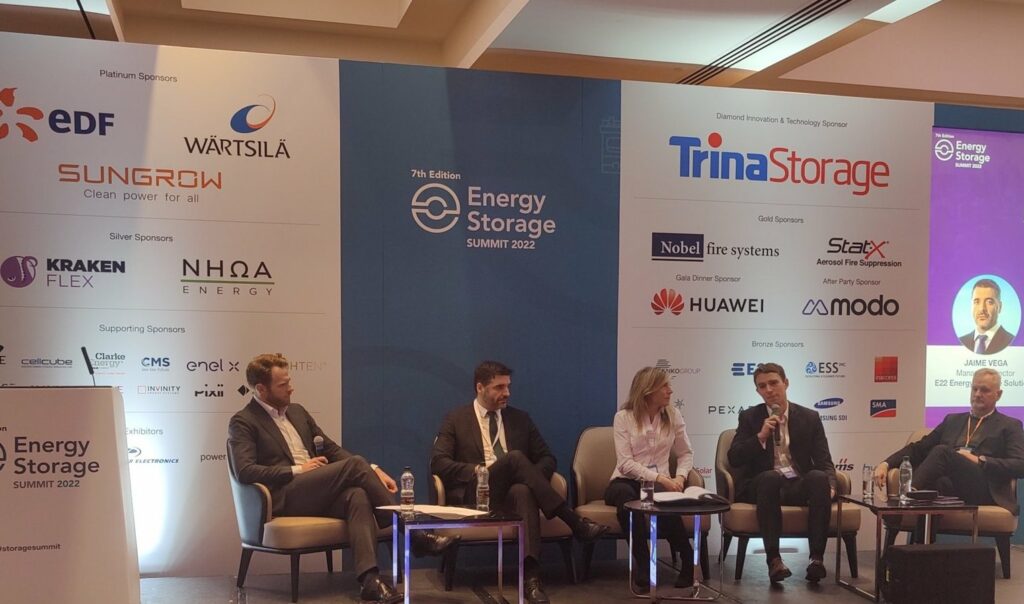
Although different energy storage technologies are often thought of as in competition with each other, it’s a case of all-hands-on-deck if we are to achieve deployment targets.
Speakers on Energy Storage Summit 2022’s ‘Increasing Capacities and Generation’ panel unanimously agreed with that premise, at the event hosted in London this week by our publisher Solar Media.
Katherine Vinnicombe, head of business development at UK grid-scale energy storage developer Eelpower, said: “There is a consensus forming that we need another 40GW of storage by 2035 in the UK which is really significant. That will be divided 50:50 between short-term needs like frequency response etc while the other half is needed to target long-term solutions.
“The big question is, what do we need to do in the market today to stimulate those solutions, which have quite different business cases to what we see in the market today?”
Try Premium for just $1
- Full premium access for the first month at only $1
- Converts to an annual rate after 30 days unless cancelled
- Cancel anytime during the trial period
Premium Benefits
- Expert industry analysis and interviews
- Digital access to PV Tech Power journal
- Exclusive event discounts
Or get the full Premium subscription right away
Or continue reading this article for free
Ed Porter, business development director at vanadium flow battery company Invinity Energy Systems, added: “There is not a conflict between different storage durations. The amount of storage we need means we need everyone in the space to deliver on all of their plans.”
Vinnicombe, vehemently agreeing with this, added that the real bottleneck in the UK system is grid connections.
“We have a xGW pipeline but when you drill down to which ones have grid connection and planning consent is something like 10%. We need a collaboration between policymakers and other stakeholders to reach those gigawatt requirements,” she said.
Staying on the topic of long ‘versus’ short duration, Peter Oldacre, VP global business development at Cellcube, another vanadium flow battery player, said that everything he is hearing from the investment community indicates lithium-ion battery prices will increase in future, not decrease as many are predicting.
Separately, Jaime Vega, Managing Director at E22 Energy Storage Solutions — a provider of vanadium flow and lithium-ion storage solutions and part of the Gransolar Group — said that scale would allow long-duration to reduce its prices to be closer to short-duration batteries.
At points the discussion moved onto more big-picture thinking around what long battery storage could potentially do, including capex deferral for transmission networks, which was mentioned by Oldacre.
Porter highlighted a recent report by energy market analytics group Aurora Energy Research which said that long-duration energy storage could save 2.5% of the costs of managing the B6 boundary, which separates the transmission network at the SP Transmission and National Grid Transmission interface running roughly along the border between Scotland and England.
Aurora has modelled a wider system need for up to 24GW of long-duration storage in the UK if the country is to achieve net zero emissions by 2035.





